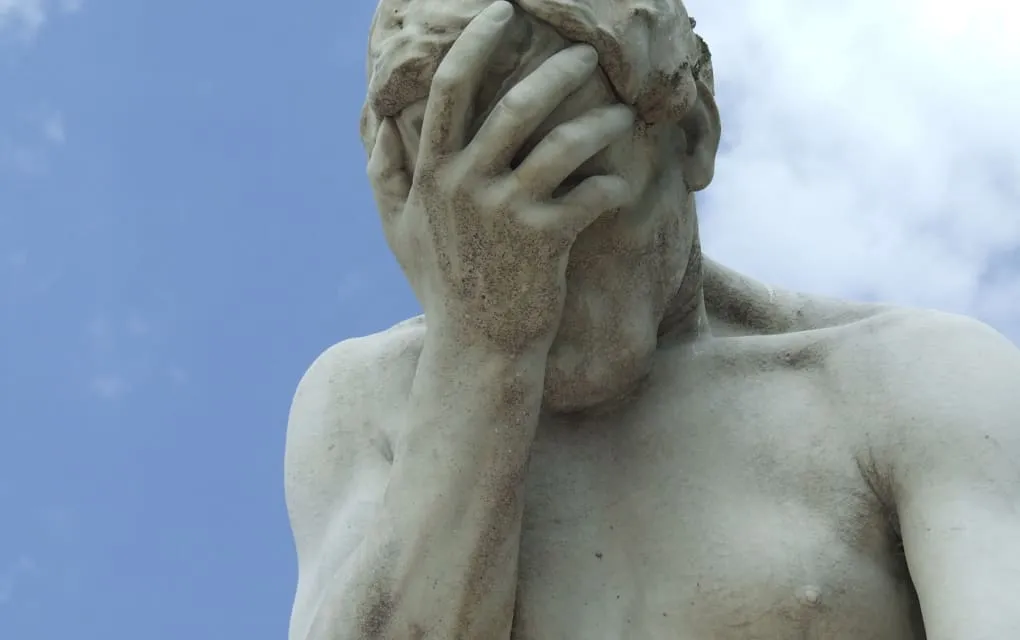I got a chance to catch up with Sellus Wilder, one of seven candidates in the Democratic US Senate primary. I found him to be relaxed, articulate, and easy to interview. Here are some of the things he had to say.
Some Background
You can read more about Sellus from his personal Facebook page, his personal web site, his campaign Facebook page, or his campaign web site. Here’s a brief overview:
- Professional filmmaker, studied directing at Beloit College
- Lives in Frankfort with his wife, Jessie, and their two children
- Served as commissioner and Mayor Pro-Tem for Frankfort
- Recently completed the film “The End of the Line” about the stopping of the Bluegrass Pipeline. The film has won numerous awards, including the IndieFEST Global Film ‘Award of Recognition’ in the category of “Liberation / Social Justice / Protest.”
Interview Excerpts
You say you’re running as a progressive. Can you give me a meta-meaning for you of the word “Progressive”?
At the heart of the campaign is the idea that we have a nation and an economy that values profits and power more than we value the lives of real people. I think that underpins almost all the problems we face, from environment regulations to income inequality. And, just basic principles of compassion.
What makes you think that your message will work in this state, when Democrats struggle so much?
Well, first of all, nobody in my lifetime has tried to do on a statewide level what I’m doing. There is this conventional wisdom that says these ideas won’t play on a statewide level. But we don’t know that for a fact, because nobody’s tried it.
I just went through a candidate forum in Prestonsburg, and the first question I got was “what are you going to do to bring our coal jobs back?” And I explained that they’re not coming back, and I explained why. And I explained what a shame it was that folks like Rand Paul and statewide Democratic leaders keep selling this myth that if we just kill the EPA then everything’s going to be fine again. Then I noted that a lot of these people have sacrificed their land and their health and their lives to our state’s economy, and they have very little to show for it. We owe them a debt, and we’re not going to pay that debt until we start having honest conversations on this subject. And I laid out the economic alternatives that I think we need: investments in diversified local economies, land reclamation, solar farms, infrastructure development including tech infrastructure, and all the things that are needed to bring our state into the 21st century.
I was nervous taking that message into Eastern Kentucky, but that’s also why I’m running: to say things like that in those areas. And there were heads bobbing up and down all over the audience. And lots of folks came up to me afterward and said how refreshing it was to hear a candidate actually be honest with them.
This is a good year for unconventional candidates. In fact, the only thing we know for certain this year is that conventional wisdom doesn’t have a clue what’s going on.And I think people, more than ever, really value authenticity, and candor.
Contrast yourself with Mr. Leach.
There’s a part of me that doesn’t want to do that, because I really like his platform. I like him personally. I very much think we’re on the same team, and that we’re trying to accomplish the same things. I think the only real contrast there is one of electability. I think I articulate the message a little better than he does. I expect that I’ll be able to raise more funds. It’s a shame that that is such a metric in politics, but it is. I’ve won elections before. (City commissioner and mayor pro-tem of Frankfort)
Tell me about some of your accomplishments in Frankfort.
Well, we started by recording all our meetings and posting them online, so everyone could see exactly what we were doing
We ended years of budget deficits and instead ran surpluses.
We incentivized recycling. We were the first city in Kentucky to charge for garbage collection by how much you throw away, and keep recycling free. Over 95% of constituents were able to lower their garbage bills, just by doing more recycling. It was really controversial – the paper didn’t like it – but it’s now one of the most popular programs in the city.
Contrast yourself with Mr. Gray.
That’s really easy, since to this point he’s refused to release a platform. The only position he’s taken is to run to the right of Rand Paul on the military, and I think that’s really indicative of the statewide approach to these issues.
He’s criticized Rand Paul for wanting to cut the military budget, which is an issue that I happen to agree with Rand on. I think there is lots of waste and abuse in that budget that could easily be cut out without harming our national security. And one of my real frustrations with a lot of the waste in that budget is the fact that we are funneling billions of dollars to private defense contractors for things that do nothing to make us safer, while failing to meet the basic physical and mental health-care needs of the people who actually make up our armed forces. So my sense is that we could save plenty of money by carving into that budget, still increase the funding we are giving our servicepeople, and have a stronger military, because when we have stronger people then we have a stronger military. I think there is a real case to be made for budget cuts that don’t harm national security.
But, regardless — and you would have to ask Gray — I think it’s pretty obvious that his advisers have convinced him to take as few positions as possible during the primary, in order to be more flexible in the general. And I even get that position, from a political standpoint. Because that was really perceived to have hurt Rand during the presidential primary.
I keep having this little debate with the Democratic party, about trying to run as far to the right as we can. I had higher hopes for Gray, going into this. My hope was that as an openly gay candidate he would be more comfortable than most politicians about sharing his true self, and running as an honest Democrat, an honest progressive, and not running away from Democratic values.
If he had positioned himself more to the left, would you have run?
No. I was really on the fence as to whether or not to get in to the race. And then he got in, and released his statement on what he was running on, and it really saddened me. It just looked like a repeat of the same Democratic standard bearers we always get — that always lose. I see all the political calculations that go into these campaigns, and I don’t understand why they keep trying the same thing over and over, when it keeps failing.
You’re specifically talking about running to the right?
Yes, in statewide elections. Not even running to the right, so much, as running away from the left. I think folks can tell that it comes across as inauthentic. So when Alison, for example, refused to say who she voted for. That was a political calculation, but it was a political miscalculation. Or Jack — if he had really leaned into healthcare, and made the case to everyone who was going to lose their healthcare if Bevin was elected, he could have at least competed in that election.
How many people were – or are – trying to talk you out of running?
Nobody’s trying to talk me out of running NOW, now that I’m in. In the beginning, yeah, party leaders threw lots of cold water on it. At first, they said it was because they had high hopes for my political future, and they hated to see me throw it all away on a race I couldn’t win.
Wait — they actually said that? They said “Don’t run this time, because we have plans for you in the future?”
Absolutely. “Because no one will take you seriously.” Some were a little more candid, and said they were concerned that it would cause trouble for Jim Gray in the primary. They just wanted everyone to get behind their establishment candidate.
And in one sense, they’re right. I really do want to put pressure on Jim to release a platform, and to let the public know what he would do if elected. Because I’m in the race to push ideas, and that’s really hard to do when the perceived leading candidate is leaving that marketplace empty. So yeah, I’m happy to cause some trouble in that regard, because I would like for him to join us in civic discourse. But it’s certainly not my intention to attack anybody’s candidacy, or attack anybody personally.
My sense is that if I can get out there and preach my message, talk to constituencies that we’ve ignored for years and years, and bring new voters into the fold, then that will be to the benefit of the eventual nominee, whether it’s myself or someone else.
What constituencies have we ignored?
PROGRESSIVE constituencies, across the board. Obviously conservation groups and environmental groups are left out. I don’t think we do a particularly good job representing minorities. We don’t address income inequality. Certainly there are lots of Democrats that feel left out.
What are you hearing from activists across the state as you travel?
They’re thrilled! They’re excited! They’re grateful to actually have someone they can get behind.
Your closers — what are they? You said you had two closers.
First, if you agree with this message and my platform, then supporting me is one of the best ways to get these conversations started around the state. That is something I can offer to my supporters, win or lose. Even if we don’t win the election, we are going to start some of these conversations. We are going to have honest conversations about the coal economy. We are going to have honest conversations about income inequality. We’re about a nation that values power and profits more than we value the lives of real people.
The second thing I think I can offer is that I’m the best candidate to beat Rand Paul in November. Because we’re not going to beat him with an inauthentic candidate. We’re not going to beat him unless we find somebody who can actually unite the progressive voice in Kentucky and mobilize and excite the Democratic base. And we’re talking about a base that hasn’t been excited in years. In YEARS. It may be a long shot, but I think it’s the only shot we have.
Comments






